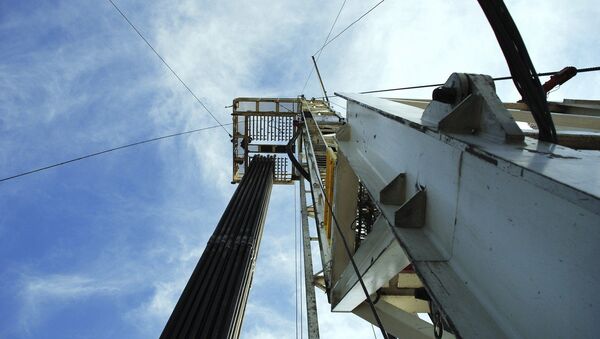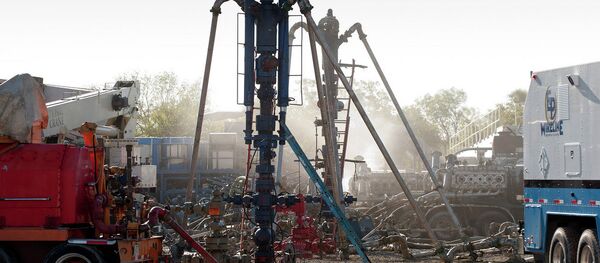"Research has linked pollution from fracking to unhealthy levels of smog and of toxic air contaminants. Exposure to this pollution can cause eye, nose, and throat irritation, respiratory illnesses, central nervous system damage, birth defects, cancer, or premature death. At the same time, the oil and gas industry has been exempted from many regulations that limit air pollution from industrial activity," the NRDC report published this week said.
The report added that the standards adopted by the Environmental Protection Agency (EPA), at the US federal government, have not been without gaps.
Hydraulic fracturing, otherwise called fracking, refers to the extraction of shale gas through the injection of high pressure liquid into soil. The technique has stirred up controversy in Europe and the United States, prompting public protests.
The primary concerns over fracking include contaminated groundwater, increased carbon emissions, which is caused by leaking methane gas, and even earthquakes.
The NRDC report is just of the many warnings that have been issued by environmental groups.
An October report published by the Environmental Integrity Project (EIP) claimed that benzene, an ingredient used for fracking, represents a far more toxic threat to drinking water supplies and public health than diesel.
Apart from causing damage to health, fracking is likely to lead to economic and marine damage.
Early in October, a group of British farmers objected that they would sustain financial losses if fracking projects went ahead since people might stop buying produce grown above fracking sites. Similarly, a report published by the Center for Biological Diversity concluded that fracking poses a threat to California's ocean, air and seismic stability.
Greenpeace has repeatedly opposed suggestions that fracking would curtail greenhouse gas emissions. The group says that there is no scientific evidence for the alleged advantages. According to the environmental group's US office, fracking "is wreaking havoc on communities and the environment across the country."
Yet, some governments, especially those of the United Kingdom and the United States, have so far spoken out in favor of fracking. According to both governments, fracking would contribute to greater energy security as well contribute more jobs and tax revenue.




